Jenkins Training
This Jenkins certification training program requires 3 weeks for course completion. During that training program, 2 weeks will be centered on technical aspects, and 1 week will be a live project. We also cover the concepts of GitHub and GIT along with Jenkins pipelines. We ask you to take the complete DevOps master program which covers all tools and prepares you technically for any requirement in the job market from the organization side.
Program Overview
Kubernetes is playing a key role in DevOps. It is a leading tool for most job opportunities in the market currently. All companies have started moving for containerization with the Orchestration part. Additionally, we must learn the Cloud Native Advanced Program when we have 5 plus Years of experience in the market regardless of technology. Get started with out online Kubernetes certification training course to enhance your DevOps skills and career.
The curriculum is focused on Kubernetes side on Security, Pipelines, Monitoring, and 15+ Tools.
Key Features of Jenkins Training
- Ideal for freshers as well as intermediates
- Guidance and quality support to build your resume
- Live training by experts for 3 Weeks
- In-depth job interview preparation
- One live projects to enrich practical knowledge
- A comprehensive explanation of projects
Program Curriculum
Pre-Requisites: This is a 1-week training session that mainly provides insight into the basics of DevOps. The classes are divided into 2 hours for each day. The DevOps Master program consists of 4 modules;
Day 1:
- Instructions on creation an AWS account
- Create Linux Machine on AWS
- Login to AWS Machine from local machine
- Importance of linux commands?
- Linux File Systems
- Basic commands that refers files and folder
- How we can learn the linux commands
Day 2:
- Add the users and groups in Linux Machine
- Change Ownership of file/directory
- Change Group ownership of file/directory
- File Permission in linux
Day 3:
- Global AWS Infrastructure
- Home Network Concept
- Networking Concept – Private and Public IP
- NAT
- VPC
- Private IP Range
- Create VPC
- Create Subnets
- Create EC2 machine in custom VPC
- Create the Internet Gateway and attach it to VPC
Day 4:
- Add public internet route entry inside main route route table
- Making private subnet and public subnet (with RT)
- Launch EC2 in private subnet
- Login to private EC2 through bastion host/jump server
- Create the NAT GW for private instance to access internet
- SSH Private and public Key
- Security Group
- Elastic IP
Day 5:
- Microservices Overview
- Difference between Monolithic and Microservices app
- Overview Build Tools npm, maven, pip
- Build the application using build tools
Day 6:
- What is docker?
- Docker Overview
- Installation of docker on ubuntu
- Run the wordpress container
- Port forwarding in docker
- Docker commands
- Docker Build
- Docker push to docker hub repo
- Introduction to CICD
- Agile Methodology- Scrum
- Source Code Management
- Git Workflow
- Creation of the remote repo
- Create an EC2 machine for developer
- Setting up the local repository
- SSH authentication with Git
- Push the commit to remote repository
- Developer Workflow Push and Pull
- Git clone
- Git pull operation
- Git branching developer workflow
- Pull request
- VS code for Git
- Conflict
- Git Merge
- Mainline in Git
- What is continuous Integration
- Overview of CI and Why CI is necessary
- What is Jenkins
- First JOB creation in Jenkins
- Git checkout Job
- How jenkins is executing the job – (jenkins user)
Build the project
- Installed Docker on the jenkins
- Build the docker image
- Pushing the images to docker repo
- Removed the created images from Jenkins server
- How to pass parameter
- Archive the artifact
- Run the container
- Stopped the container and remove the container
- How to connect private GitHub repo to the Jenkins
- Nexus install
- Nexus to run
- Creating repo on nexus
- Setting up the credentials with nexus repo
- Sending artifact with maven deploy
code as pipeline
Master slave
Users in Jenkins
Project
This Course Includes
- Eligibility: Fresher to less than 4 Years Experience
- 3 Weeks of LIVE training + 1 Week LIVE Project
- Self paced videos available
- 5 LIVE Projects
- Interview Preparation
- Resume Building
- Project Explanation
- LIVE Session will get recorded & Shared
- Support via Email & Slack
Corporate Training
Corporate Training has become an essential part that constitutes the work culture. While most training is conducted for soft skills, a DevOps Master Program will provide an all rounded development. This DevOps course is highly beneficial for freshers taking their first step in the corporate world. With streamlined and accessible training modules, this DevOps training will zoom through maximum topics essential to get going with DevOps.
Skills You'll Acquire:
Linux
CI/CD Pipelines
Infrastructure Code
Configuration management
Cloud computing
Container orchestration
Tools You'll Learn:








Why Choose Mindbox
Career Services
Interview preparation
We prepare you thoroughly for a successful interview
Portfolio building
We help you build a strong portfolio with LIVE project work during the DevOps certification program
Mock test
We provide mock test to prepare you for real world DevOps challenges and projects
Project explanation
Our team of experts explains you each aspect as the DevOps course progresses.
Our Expert Trainers
- Our team of trainers carries more than 10 years of expertise and experience in the Agile industry.
- Also, they have become masters in Cloud Foundation. Each of our experts possesses certificates in DevOps, CI/CD pipelines, Jenkins, Ansible, Docker, and Kubernetes.
- We have a team of well-qualified DevOps professionals who can effectively impart their knowledge.
- So, whether you lack technical knowledge or know the basics, you can be sure of learning the best of cloud engineering from our panel of DevOps experts.
- Although the DevOps training program encompasses all the components to help anyone become one of the best DevOps cloud engineers, the likelihood is lower without the right personnel.
Our Project Work

Overview
Home Ecommerce app is a cutting-edge project built on a foundation of micro services in DevOps certification. This application platform helps students to understand how to deploy applications. The deployment is done on the Kubernetes platform. All the images have to be built using the docker tool.
Tools
Docker, Kubernetes, Kubectl, AWS CLI, Docker Hub Registry are used in DevOps course
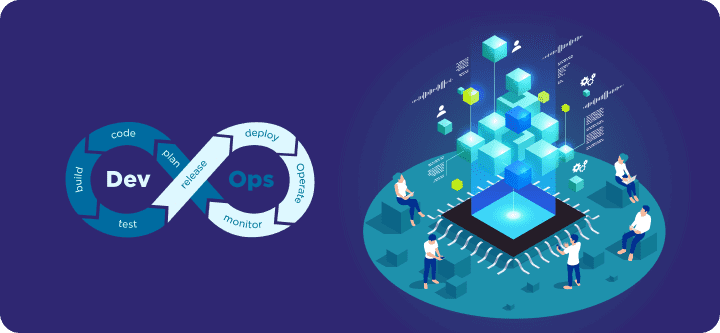
Overview
Spring Petclinic Project is a micro-service-based application that we will use to learn how to build the application, how to deploy it using the best practices around CI/CD, and how to automate configuration using Ansible
Tools
Jenkins, Git Github, Nexus, Ansible, AWS EC2, Docker
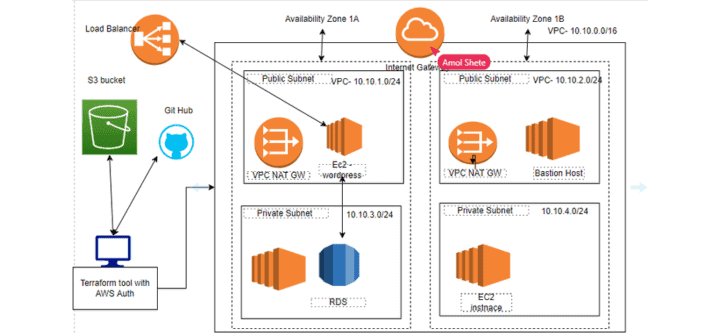
Overview
We will create the available best practices infrastructure using the Terraform tool. This project will give an idea of how the cloud infrastructure needs to be created in the real world, and how to maintain it for big enterprise organisations.
Tools
Terraform, AWS CLI, AWS services such as EC2, Auto Scaling Group, Load Balancer, VPC, Subnets, Bash scripting, Network related services
Who May Apply to this program?
- Anyone who has Blow 4 Years of IT experience Irrespective of the technology.
- Freshers who dont have any IT experience also can apply for the course.
- Any Non-Coding background can also apply for this course
Industry Trends
Annual Salary
An average of 7 LPA
Companies Hiring
TCS, IBM, Accenture, Cognizant, HCL, Oracle, Capgimini
Demand
The current demand is expected to triple and quadruple in the coming decade
Market Growth
The sector is expected to register a CAGR of 24.2% from 2021 to 2030.
Market value
The global DevOps market size was valued at $6.78 billion in 2020, and is projected to reach $57.90 billion by 2030
Job Growth
Jobs are expected to grow 15 percent between 2021 and 2031
Reviews
I took AWS DevOps training at Mindbox. The trainer was so great in training us. He has 10+ years of experience so he explained a lot of real-time scenarios. We used to have projects every week. We got a chance to do a project together and present and explain the project. It helped everyone in the class. Overall totally worth training. For AWS and DevOps, this is the best Institute with a decent cost as well. Good luck everyone!!
Padmapriya Vijayakumar
Students
The great course format, As the name suggests is really Advanced DevOps training. The syllabus is properly designed considering cloud service providers like AWS, and Google. A trainer is a knowledgeable person about AWS, Google clouds & its association with DevOps. Also, we have received AWS Solution Architect self-paced training which is very helpful to get the proper understanding of Cloud features. You can go for this training without any second thought. Mindbox is providing recordings of the Live sessions which is very helpful for future reference.
Prasanth Dalvi
Students
The training was really nice. Things were explained thoroughly and even a person without knowing the complete basics could catch up easily with the way the things were explained. I will give a rating of five stars and can assure you that this is one of the best training I ever had. Thank you Mindbox for the continued support.
Aparna Panicker
Students
It’s a great platform to learn and implement your knowledge in your day-to-day life tasks. It’s simply awesome and full of knowledge.
Suryakant Samal
Students
Great place to learn Kubernetes, and the trainer is very knowledgeable. This course really helped me to change my profile to DevOps. I would recommend this institute to everyone who is interested to move their career to DevOps and SRE roles.
Vinay Krishna
Students
Mindbox training institute is simply great … Just completed a DevOps course, teaching was excellent.
Santosh Patra
Students
Inquired about many training inst for DevOps training. Finally, chosen mindbox The trainer is the best in the explanation part of every tool. The live projects have helped me to understand the real-time environment. He covered AWS & DevOps with all prerequisites. I thank the management of mind box for creating this kind of program with top-notch trainers.
Raj Kalam
Students
I came to know about Mind box from YouTube videos, Initially, I was really skeptical about online training. Now I feel I made the right choice choosing Mind box. The instructor is very detail oriented and the support for questions is really quick. This is the best online training I got so far. I got everything that I was looking for and was very happy about it.
Krishnaveni Valluru
Students
Got the knowledge on most of the concepts which are industry is seeking from the DevOps professionals.
Ravi Dasoju
Students
Great Instructor, Topics are covered in detail and in a very professional manner. The way the training is done is top-notch. The queries are answered very clearly. One of the best online training institutes. I would strongly recommend Mindbox training institute. Great support from the staff and the trainer.
Naveen D
Students
The training is completely practical oriented and it feels like we are working in a real-time environment. The way of teaching is excellent. The guidance is really great.
Dinesh
Students
Training has been great, he has got lots of experience and explains the topic in a great way, projects that mindbox provides are good. Support from Mindbox has been outstanding he will respond in moments over WhatsApp or over call which is really great as most of the institutes won’t respond once payment is made but Mindbox is really different from them.
Gowtham Sai Charan
Students
FAQ'S
The Jenkins online course includes 4 modules. Each one gets divided into 2 weeks of training with 1 week project.
You may contact the professioanl during the course. Also, you can call our team for resolution after the class is over via stack email and 24/7 support.
During the project week, our team holds an interview session. Here, you can ask queries concerning LIVE projects and get expert guidance.
It is a practical-based certification. We provide live projects and training to make you ready for challenges in the real world.
We have highly expert trainers who can make the technology transition efficient and faster. No matter whether it is a company or an individual, we try to play a major role in upskilling our learners and making them ready for solutions for the next generation.
Yes, our Jenkins online training course aims to sharpen the skills of DevOps professionals with project and live training. So, you get prepared for a position in an IT organization.
We have skilled trainers who motivate learners to acquire the necessary knowledge. Also, they possess enough expertise in the subject and let you perform better than others
Yes, we offer the necessary help and support to build an eye-catching resume to grab the attention of employers.
Yes, we do provide materials and relevant interview questions! We make every attempt to make you ready for the job market.
We offer many other courses such as the DevOps master program, Terraform training, Cloud Native DevOps, Docker training, and Azure DevOps training.
Jenkins is an open-source automation tool that helps to automate the parts of software development related to building, deploying, and testing, facilitating constant integration, and uninterrupted delivery.
There are no prerequisites to master Jenkins. However, having basic knowledge of programming and software development processes comes in handy. A course in Jenkins will let you get going in the field.
Learning Jenkins keeps you updated with DevOps processes. So, you can land a job in various roles such as Jenkins pipeline, organization folders, multi-configuration channels, and others in any IT company.
The median salary, in India, for a Jenkins build and release engineer is 615,756 INR. Anyone with 1-4 years of experience can pull up an average salary of 490,857 INR. This includes tips, overtime, and bonuses.
Jenkins is an open-source continuous/integration delivery and deployment (CI/CD) automation DevOps tool written in Java. It is used for implementing CI/CD workflows, called pipelines.
CI/CDs are workflows in Jenkins. They are also called pipelines, and they form an essential part of software development and deployment when using Jenkins.
The main job of Jenkins lies in managing and controlling various stages of the software delivery process such as build, automated testing, documentation, packaging, and static code analysis.
The Jenkins course will sharpen your skills and let you get familiar with different aspects of this open-source tool. Additionally, learning Jenkins will land you a job with higher pay quickly.
Anyone who intends to fully understand how Jenkins works and how it is being used in the field should take up this Jenkins course. DevOps, IT admins, or developers who want to advance their careers must learn Jenkins.
Docker is used for building and running multiple portable environments of a software stack. Jenkins, on the other hand, is an automated testing tool for your software applications.
Similar Courses
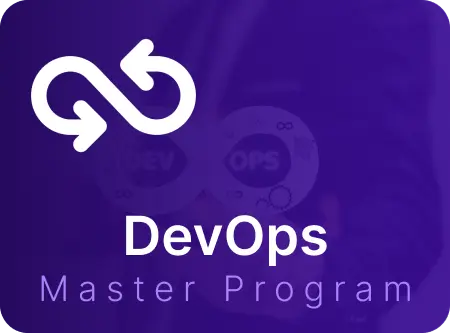
DevOps Master
Program
- 120+ Hrs
- Who needs to Enroll (Perfect Curriculum for Freshers & Less than 3 Years Experienced in IT)
- 3.5 Months Duration
- Basic to Advanced
- 5 LIVE Projects | 100% Career Centered Curriculum
- Self-paced learning Video Option Available
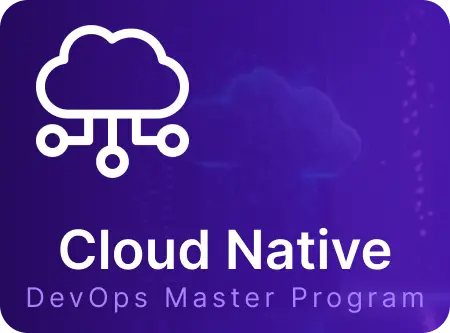
Advanced Cloud
Native DevOps Master Program
- 230+ Hrs
- Who needs to Enroll ( The best Curriculum for Above 4+ IT Experienced Professionals )
- 3.5 Months Duration
- Pre-Requisites to Highly Advanced futuristic
- 5 LIVE Projects | 100% Career Centered Curriculum
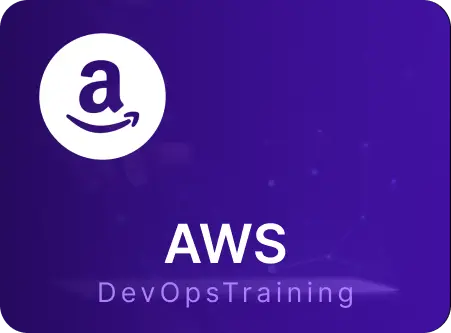
AWS DevOps
Training
- 120+ Hrs
- Covers the complete package of tools needed to be a DevOps engineer for freshers and experienced IT professionals.
- 3 Months Program from Pre-Requisite to Advanced level
- 5 LIVE Projects | 100% Career Centered Curriculum
- Self-paced learning Video Option Available
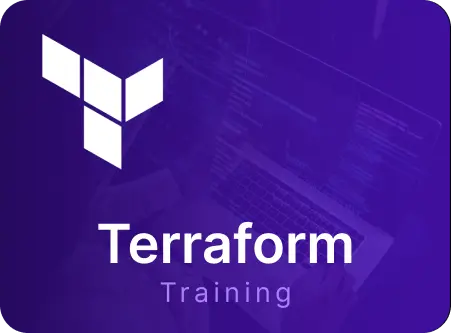
Terraform
Training
- 30+ Hrs
- Anyone who looking to enhance their knowledge of infrastructure tools particularly on terraform
- 2 Week Training + 1 Week project
- Cover all topics including some AWS advanced concepts
- Self-paced learning Video Option Available
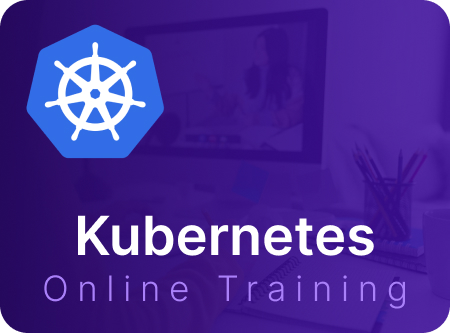
Kubernetes Online
Training
- 30+ Hrs
- Covers the advanced topics on Deployment, Cluster, Containerisation, etc.
- 2 Weeks Training + 1 Week Live Project
- A pre-requisite module will be delivered to learn Kubernetes and Docker
- Self-paced learning Video Option Available
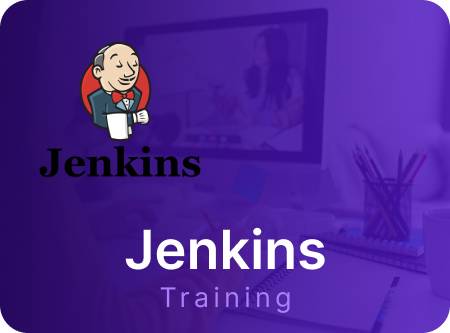
Jenkins
Training
- 30+ Hrs
- Covers complete CICD pipeline concepts including GIT & GIT hub
- 2 Weeks Training + 1 Week Project
- Include a Pre-Requisite module for a better understanding of Linux Basics and Cloud concepts to learn Jenkins
- Self-paced learning Video Option Available
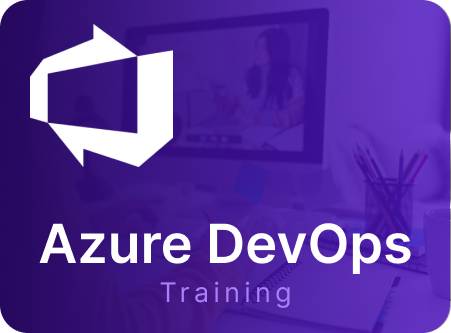
Azure DevOps
Training
- 30+ Hrs
- Anyone who looking to enhance their skill on CICD of Azure DevOps
- 2 Weeks Training + 1 Week Advanced Project
- Pre-requisite module will be provided to understand the basics of Kubernetes and Containerisation
- Self-paced learning Video Option Available
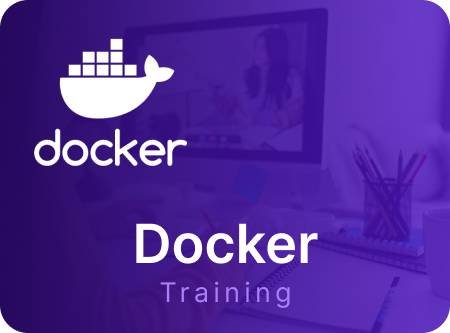
Docker Plus Ansible Training
- 30+ Hrs
- Covers complete Advanced topics on Docker including configuration management tool Ansible
- 2 Weeks training + 2 Projects
- Include Prerequisites of Linux & Cloud topics for better understanding
- Self-paced learning Video Option Available